#yui ikari
Text
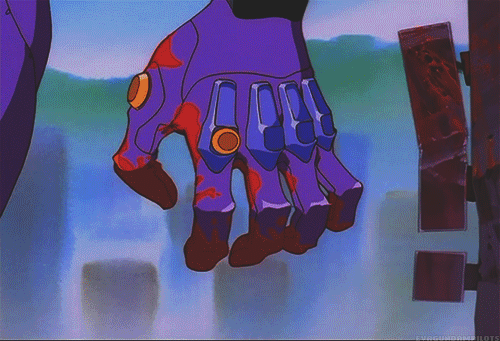


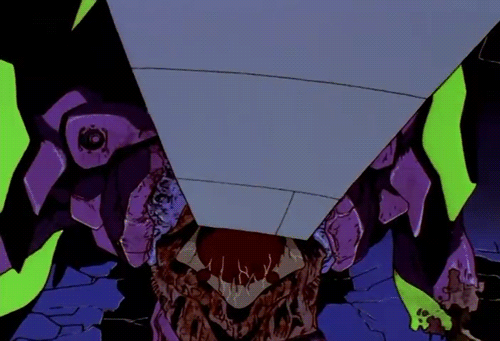
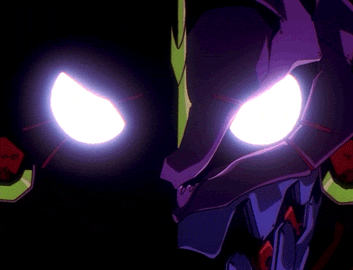
Eva 01
#neon genesis evangelion#evangelion#nge#rebuild of evangelion#shinji#shinji ikari#end of evangelion#eva 01#rei#rei ayanami#yui ikari#anime#anime gif
1K notes
·
View notes
Text
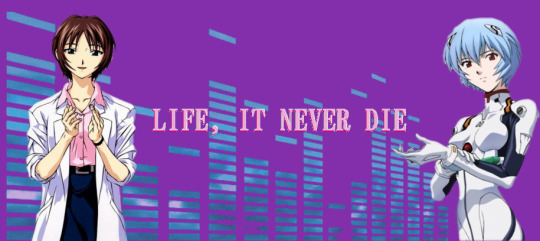
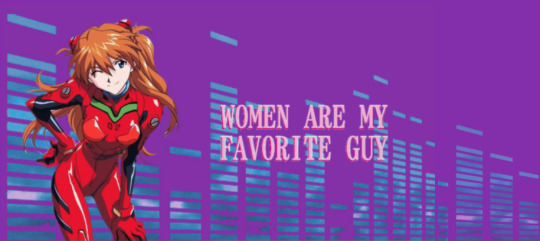


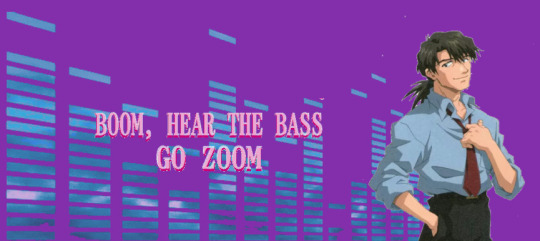

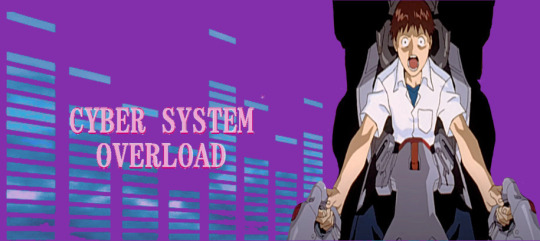

When the rhythm is glad... there's nothing to be SAD ! 🕺 🪩🤩🎶
Evangelion + planet of the bass (inspo)
#planet of the bass#dj crazy times#women are my favorite guy#neon genesis evangelion#ms biljana electronica#evangelion#the last one was supposed to be gendo but then i found that pic and i just had to repeat her sjssksks#please look at this it took me like 6h for 4 days straight and dont have ps or know how to edit#asuka langley soryu#rei ayanami#shinji ikari#kaworu nagisa#misato katsuragi#ryoji kaji#anna's shitposts#welcome to the circus#shitpost#yui ikari#ritsuko akagi#i think i'm so funny for some of these...😩💀#anime#Y2k#Eurodance#Mine#Greatest hits#Asuka Langley#Ayanami rei#Nge#Eva
835 notes
·
View notes
Text
anime women have unrealistic body types but I admit that more women should strive to look like this

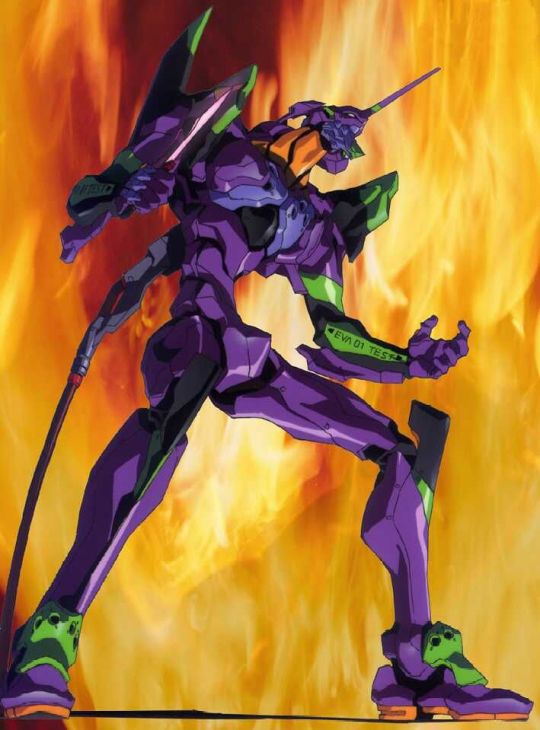
176 notes
·
View notes
Text

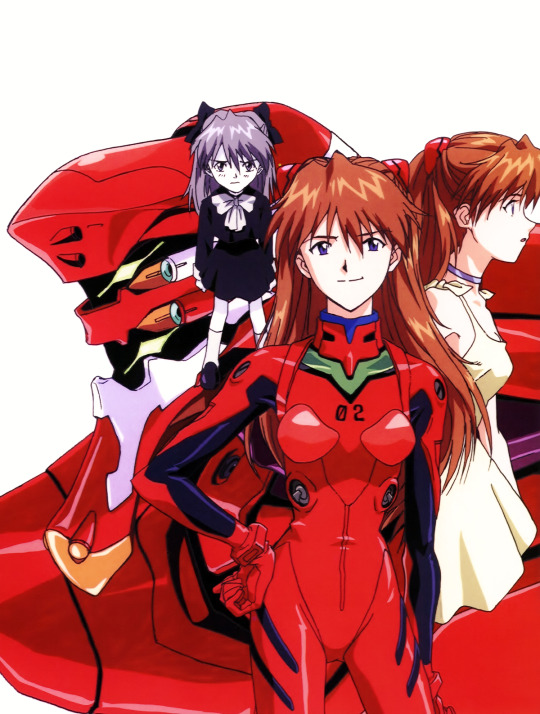
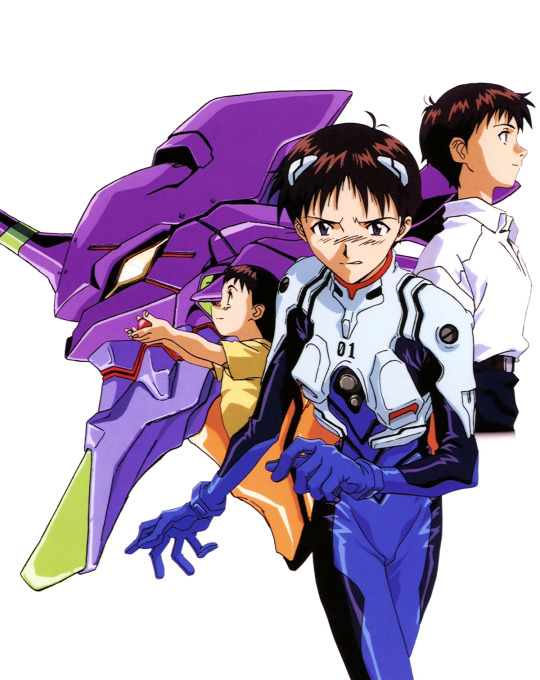
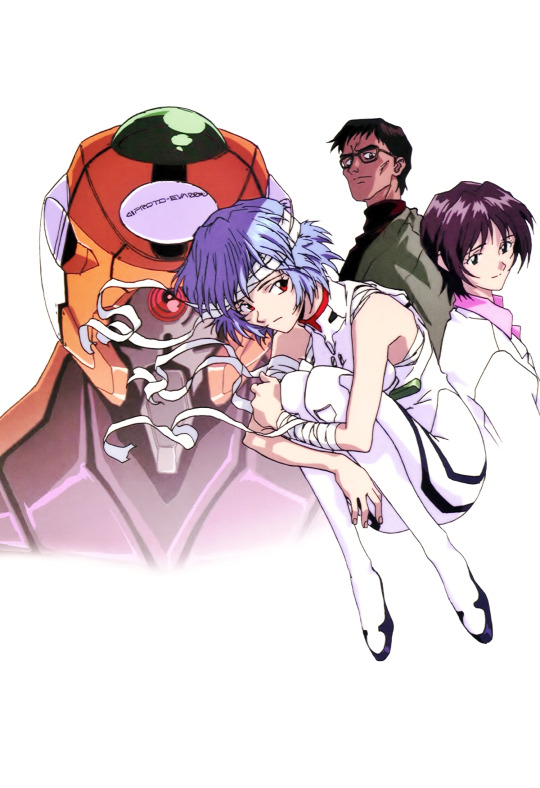
Masayuki Yamaguchi
#neon genesis evangelion#nge#rei ayanami#asuka langley soryu#shinji ikari#unit 00#unit 02#unit 01#yui ikari#gendo ikari#90s anime#official art#official artwork
1K notes
·
View notes
Text
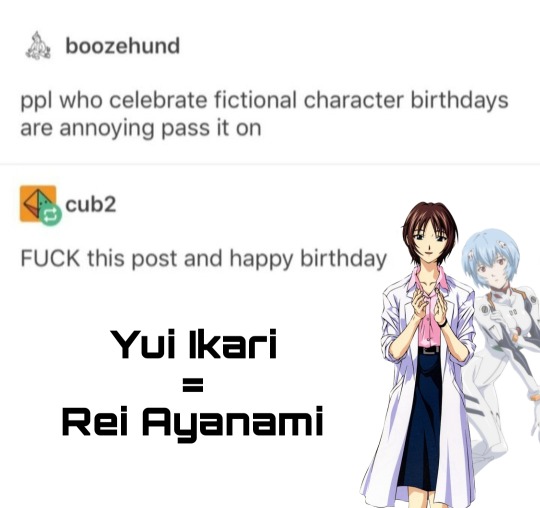
March 30th
#anime#anime birthdays#anime memes#nge#neon genesis#neon genesis evangelion#yui ikari#rei ayanami#ayanami rei#ikari yui#evangelion
120 notes
·
View notes
Text

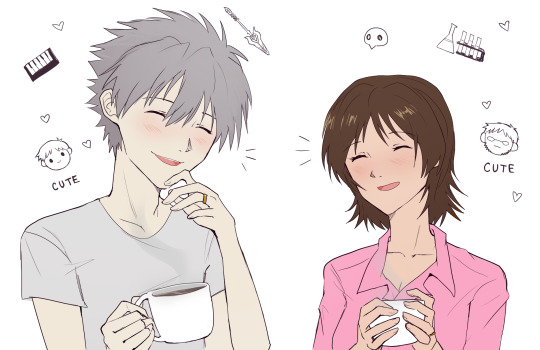
visiting the in-laws
#evangelion#rebuild of evangelion#kaworu nagisa#gendo ikari#yui ikari#kawoshin#genyui too i guess...sigh#kaworu being all. oh hello father :) [trying to kill him with his mind]#meanwhile he and yui bond over their mutual love of their cringefail husbands and philosophy#my art
121 notes
·
View notes
Text


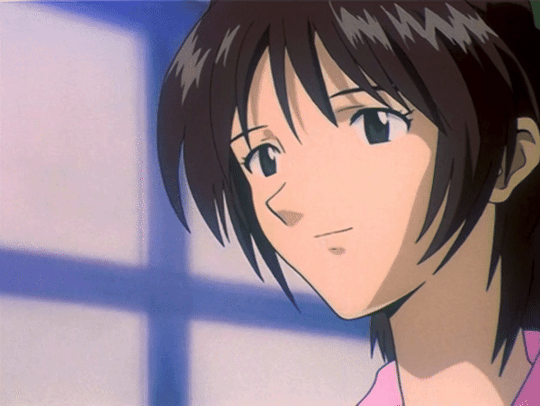
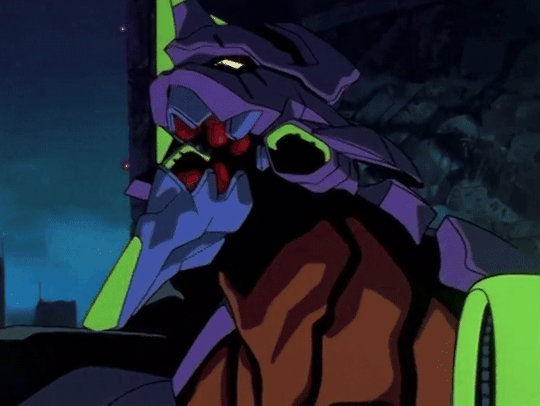
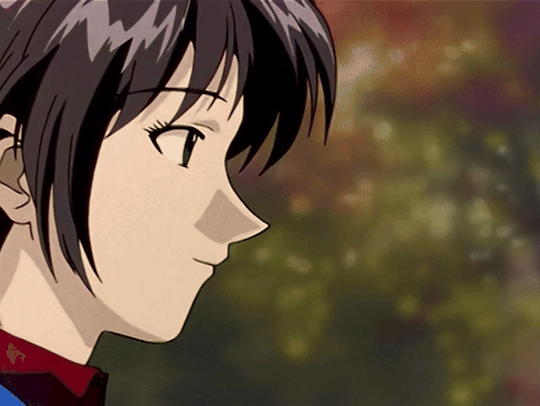
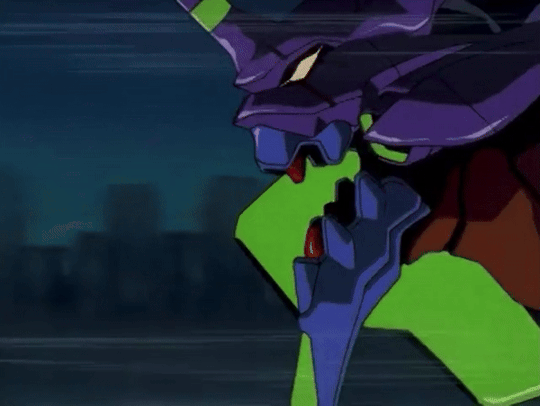




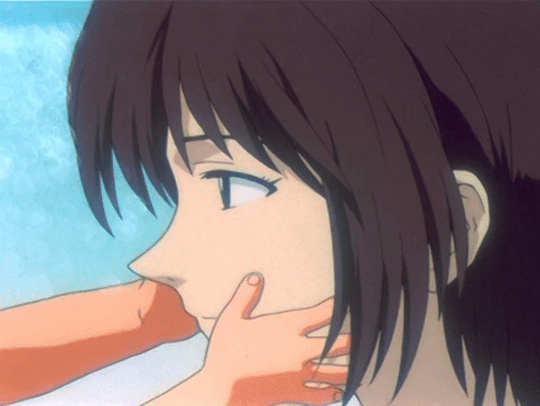

YUI IKARI/EVA-01 | Vague Visual Parallels
#yui ikari#EVA 01#evangelion unit 01#eva unit 01#(she has so many names)#neon genesis evangelion#nge#gifs#i hope you guys like this one i made it with lots of love#I wont her ❤️#HAPPY BIRTHDAY
102 notes
·
View notes
Text

I just broke into khara HQ and found all these very real evangelion plushies that they're definitely going to release soon!!!!!!!!!! guys i'm so excited
#elle art#evangelion#neon genesis evangelion#(gears whir as i try to remember every character's name)#hikari horaki#toji suzuhara#kensuke aida#makoto hyuga#maya ibuki#shigeru aoba#yui ikari#ritsuko akagi#naoko akagi
156 notes
·
View notes
Photo
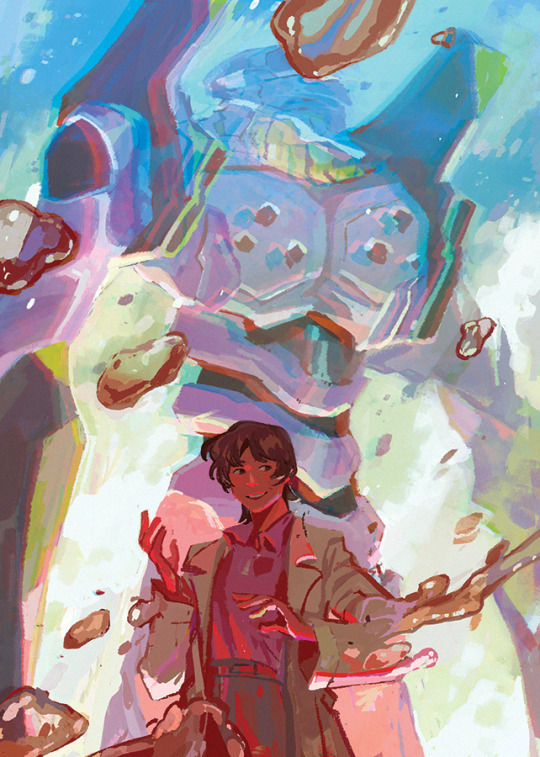
forgot i never posted this illustration of yui ikari i did for mother dearest aka andys milf zine~ shinji ur mom is so cool
#yui ikari#neon genesis evangelion#i need to post things on tumblr bc its the best archive of my art that i have lgmsdkgjsdg#meruzart
2K notes
·
View notes
Text
What My Father Wanted was to Kill God: Reflecting on the cycle of Rebuild of Evangelion

It's been two years now, since Evangelion 3.0+1.0 hit Japanese cinemas for the first time.
I think many of us chose to say goodbye to Eva on that day, too, leaving satisfied. I can't fault anyone for this. But there's a part of me that stings knowing that 3.0+1.0 has been left relatively un-combed-through in comparison to the other films, and I don't feel right leaving it this way.
Today, I want to dissect "loop theory" - what it was before 3.0+1.0 came out, in what ways we missed the mark back then, and finally, what the resolution of 3.0+1.0 meant for the story.
I want to understand what it meant to kill God.
This article was heavily inspired by "What was loop theory? Investigating the truth after Evangelion 3.0+1.0", by Japanese fan-channel Eva Fan.
If you want to understand the meta angle of Rebuild better (i.e. "why does Rebuild even exist in the first place?"), please watch the NHK Professional documentary on Anno and the production of 3.0+1.0 (not "The Final Challenge of Evangelion" version on Amazon, although you should watch this one too because they're both great.) The meta of Rebuild is outside the scope of this article.
SECTION 1: WHAT WAS LOOP THEORY?
If you're already familiar with the basis of loop theory, you can probably skip this section and head to section 2. This is gonna be a lot of recap.
I, for one, have never been a huge fan of the idea of "loop theory". This isn't to say that I've ever disagreed with the conclusion that Rebuild's world is stuck in a loop, more that I felt like painting it as a "theory" is seeding more ground to bad faith actors in the fandom than necessary.
However, I'm using the term here to refer generally to different theories about the loops, namely those regarding Kaworu and potential connections with End of Eva.
Now that all of the disclaimers are out of the way...
ESTABLISHING OUR BASES, PART 1: THE MESSENGER
From the moment he's introduced, Kaworu's entire purpose in the first two films seems to be establishing the loop to the audience.
His familiarity with previous versions of Shinji is front and centre in the very first line he speaks.
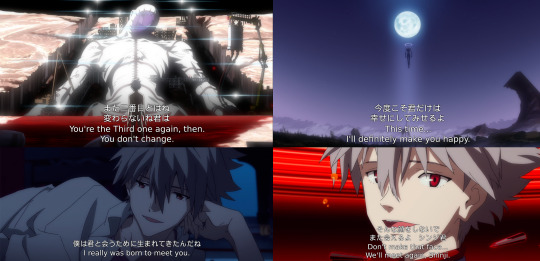
Some relevant lines from Kaworu in 1.0, 2.0 and 3.0. Full sized image here.
While at this stage, we lack information on how much Kaworu knows, we are at least aware of his knowledge of previous iterations of the Eva world in that first line there: "The Third one again".
This is compounded at the very end of 2.0, in which he declares that "this time" (as opposed to previous times, presumably failed attempts), he will make Shinji happy.
In 3.0, there's a moment in which he seems to confirm to himself his musing in NGE of having been "born to meet" Shinji (notice the lack of のかもしれない "probably"), and following some more ambiguous lines we'll skip over, at the end of a long speech about parts of ourselves remaining in the world even after we're gone, he suggests he and Shinji will see each other again just before he dies.
These lines lead some fans to believe that the loops were in some way or another, under Kaworu's control. This iteration of loop theory suggested that the loops exist so that Kaworu, who remembers the events of NGE, can achieve his goal of "making Shinji happy".
ESTABLISHING OUR BASES, PART 2: THE RED SEA
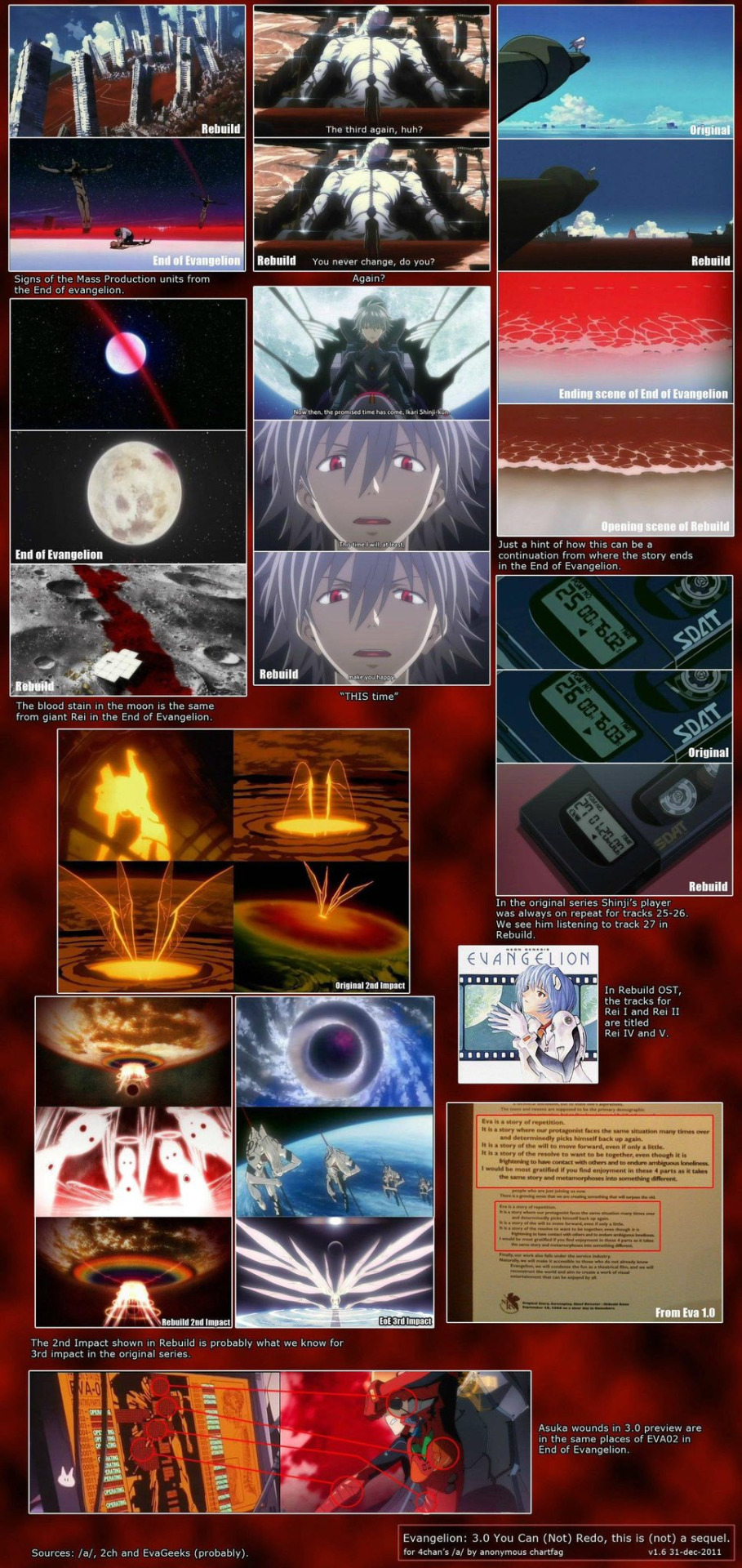
Non-exhaustive chart of potential connections between Rebuild and NGE/EOE, compiled by users on /a/ board in 2011. Full sized image here.
There are several environmental aspects of Rebuild's world that seemed to suggest a connection to The End of Evangelion, most obvious amongst these being the red sea.
As Kaji explains in 2.0, the seas were blue prior to Second Impact. Flashbacks to this event reveal that it bore slightly more in common with EOE's Third Impact than NGE's Second; note the presence of the Black Moon in the comparison above.
Early on in 1.0, there's a shot that shows cross-shaped white outlines in the red sea, that appear to be remnants of EOE's crucified mass production units.
The moon in Rebuild also has a large, red streak on its surface, that could be the bloodstain that was left there by Lilith in EOE.
Additionally, Shinji's SDAT in NGE always looped the same two songs, shown under the track numbers 25 and 26. In Rebuild, Shinji's SDAT's track number begins at 27, and goes up from there (it seems to represent the relationships he forms with other people).
Some iterations of loop theory suggested that Rebuild was set directly after End of Eva, and that the events of Second Impact as remembered by the cast were actually EOE's Third Impact.
Additionally, though its relevance to any canonical NGE content is tenuous (tenuous, but not irrelevant when it comes to Rebuild; see the bonus chapter), Sadamoto's NGE manga also ends with a kind of timeloop.
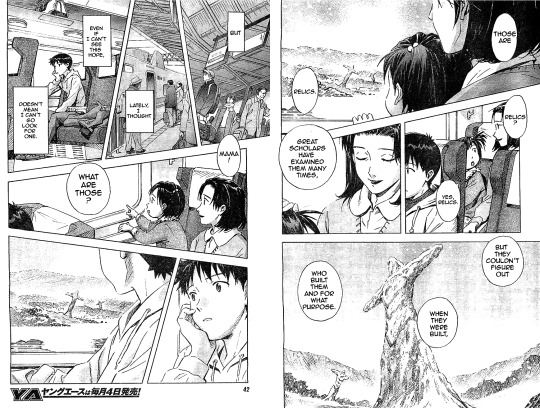
From the epilogue chapter of Yoshiyuki Sadamoto's Neon Genesis Evangelion manga. Full sized image here.
After Instrumentality, the epilogue flashes forward to a long time in the future, where the crucified Evas are seen as some kind of relic from an unknown time.
We see Shinji, Asuka and Kensuke reincarnated, and Shinji and Asuka meet for the first time, with some sense that they've seen each other before.
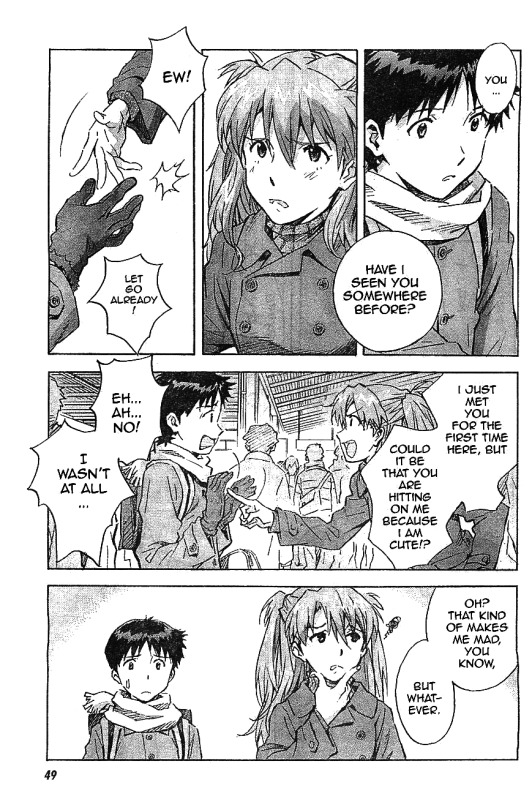
Full sized image here.
This ending could be seen as an explanation of sorts of what's going on in Rebuild; the characters have been reincarnated a long time after the fact, while elements of the old world remain as part of the environment.
ESTABLISHING OUR BASES, PART 3: DOUBT
It should go without saying that, even at the time, these particular conclusions had holes in them. (This is to say nothing of the hundreds of other iterations of loop theory; if we went through every whacky headcanon explanation people posted on Reddit under the guise of it being any kind of genuine theorization, we'd be here all day)
Sequel Theory, especially past 3.0, required you to ignore contradictory information being presented in the same scenes the evidence being drawn on was. The comparison image I included earlier (it pre-dates 3.0's release, but was certainly spread around long after the fact) suggests that the Four Adams as they appear in 2.0's flashback could have been the Mass Production Evas (of which there are 8, not 4!). Two of the lines from Kaworu it included also don't support this line of reasoning; both "This time..." and "You don't change" imply multiple previous loops, not a singular. And while we haven't mentioned them so far, the coffin he emerges from in 1.0 being one of several was also something people were aware of back then.
Speaking of Kaworu - Shinji's Happiness Theory doesn't seem to line up with the way he goes out in NGE, either. He asks Shinji to kill him with the goal of achieving true freedom; it doesn't seem like he's looking for a next time, but rather an ending, away from his destiny as an angel. It doesn't really follow that Rebuild's loops would be a journey he'd set himself on willingly, rather a circumstance he's put into by some other force.
SECTION 2: PAYOFF
3.0+1.0 responds to the foreshadowing of previous entries in a way that's kind of inconclusive, on its face. I'm going to save the potential answers for the next section; for now, let's just go over the information we did get, including some things you may have missed.
PAYOFF, PART 1: OUT IN THE OPEN
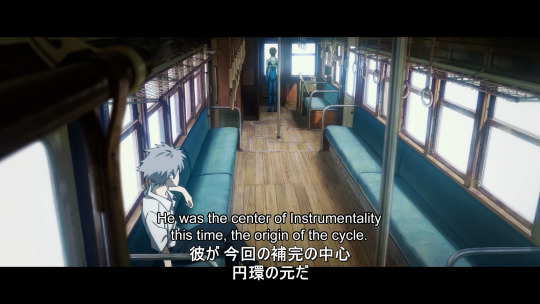
Kaworu describes Gendo as being the origin of the cycle. Full sized image here.
Our first piece of confirmation, and first in-universe mention of the loops (or "cycle"/"circle"), is this line. "Gendo was the center of Instrumentality this time", the "this time" implying there have been other Instrumentalities with other person/s at the center. "Origin of the cycle" may indicate that Gendo is in control of the loops as a whole, or it may instead indicate that different people start them, perhaps through Instrumentality.

Asuka wakes up on the beach. Full sized image here.
After coming to terms with her feelings, Asuka "wakes up" in the same spot she was lying at the end of EOE, wondering if she was asleep. This is still in the anti-universe, but as was established by Gendo earlier on in the film, the Evangelion Imaginary and the anti-universe as a whole manifest as parts of one's memory. Asuka is our POV character for this section with her, so she must recall having been here. Maybe you could interpret "was I asleep?" as Soryu, specifically, having woken up.

Selections from Kaworu's Instrumentality. Full sized image here.
Anything that focused on Kaworu here was always going to be the juiciest in relation to the loops, but it's surprisingly upfront even then: There have been multiple previous loops, and Kaworu is not in control of them, he just continues to exist without agency over them like all of the other key players do. (That's both of our aforementioned Theories disproven in one scene!)

Kaworu introduces the "Book of Life", Kaji clarifies the details. Full sized image here.
We're also introduced to a new concept here, the "Book of Life". There's very limited information on what this does, but at least Kaji is here to fill in some details Kaworu conveniently leaves out, as he likes to do (that, if nothing else, Shinji and him meeting over and over again is something Kaworu has power over.)
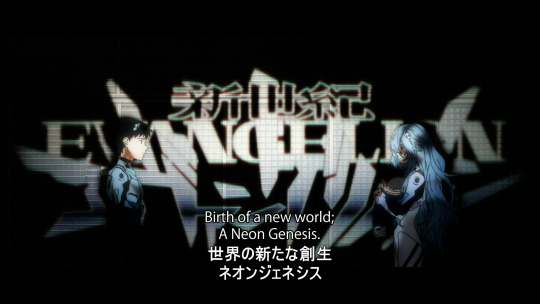
Rei and Shinji discuss the birth of a new world. Full sized image here.
Most of Rei's instrumentality scene exists to wrap up the other aspect of Rebuild's narrative we're not talking about here, so I'll skip past all of that to this: with Unit-01 and the Spear of Gaius, Shinji is capable of creating a new world, through a power known as Neon Genesis. It may be worth noting that Shinji has to clarify that he isn't going to rewind time or revert the world, just create a new one on top of the existing. This may establish a precedent for characters in control of Instrumentality being able to do both of those things.
PAYOFF, PART 2: A CLOSER LOOK
NGE has a LOT of references to the years its set in. Even beyond the on-screen text, there's plenty of instances of plaques and other signs with the 2015 date on them. Rebuild, however...

Yui's grave as it appears in 2.0. Full sized image here.
The only time we ever see a date in the first three films is here, on Yui's gravestone in 2.0. It's partially obscured by flowers, and may appear at first to read the same as her NGE grave did. On closer inspection, though, you can clearly see there's a 0 in front of 2004.
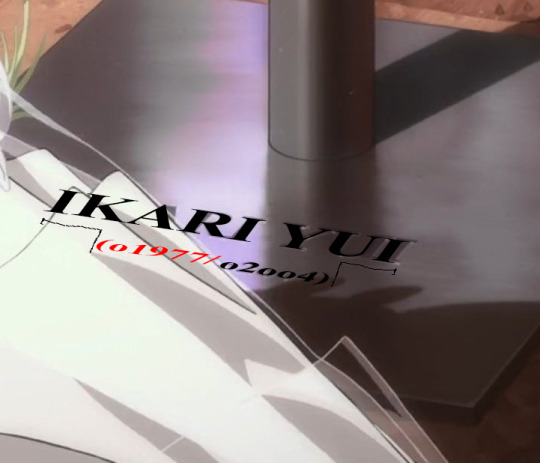
This could be what the gravestone has written on it. Full sized image here.
One time could mean anything, but it becomes a pattern when we see more dates in 3.0+1.0...
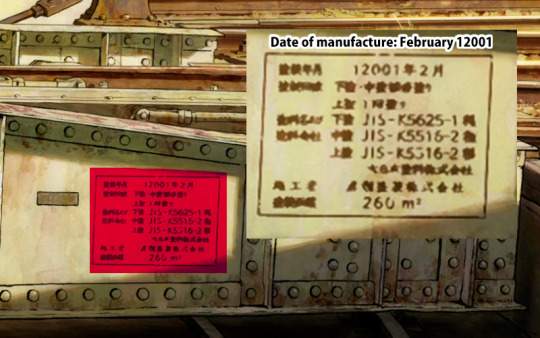
The manufacture information on the railway track turntable in Village-3. Full sized image here.

The plaque on the AAA Wunder. Full sized image here.
Looking at that date given on the railway turntable, the earliest date 3.0+1.0 could take place is the year 12001.
This, combined with the physical evidence present in the first two films, seems to imply that Rebuild follows the same rules established in the Sadamoto manga, that the loop isn't necessarily a reset of the world, but rather a continuous stream of time in which the characters are reincarnated. It makes sense Sadamoto would use this as the basis for his ending, too - he worked on the first two films, and the Mari bonus chapter clearly demonstrates that certain aspects of Rebuild were solidified during their production.
Furthermore, the scene in which Shinji asks Gendo what he wishes for has more visual references to EOE than you might think...

Gendo grasps his right arm, as if he remembers the time he lost it. Full sized image here.
The arm thing is obvious, and the line he says there could be about EOE, but you might notice something else in that image on the left there. There's a picture of Shinji in the background.
That image comes from one of the flashing sequences in EOE's Third Impact, in fact, the entire sequence is overlaid on top of that shot of Gendo.
This shot in 3.0+1.0 versus the same sequence in EOE. The encode of 3+1 I was using was dropping frames here, so I had to cut some of it out. Video mirror here.
By the way, adult Asuka's official name, as used in every piece of merchandising she's been in so far, is just "Asuka Langley", not "Asuka Langley Shikinami" or "Asuka Langley Soryu".
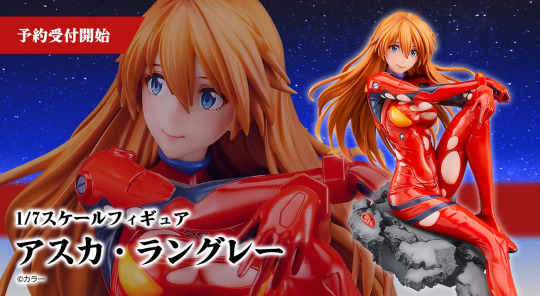
Good Smile Company's "1/7 Scale Figure: Asuka Langley". She has a fair few figures, all of them with this name. Other merchandise never calls regular Asuka this. Full sized image here.

Rei holds a doll of Tsubame. Full sized image here.
The same thing ends up happening with Rei in-universe. The version of her with long hair is clearly Rei from 2.0, who has been inside the entry plug this whole time, but when we see her on the stage, she's holding a baby doll. It has Tsubame (Hikari and Toji's daughter)'s name written on it.
It seems to follow that different versions of the same character end up re-joining into one during instrumentality, be that cross-loop like Soryu and Shikinami, or in-loop, like Rei and Sokkuri (Lookalike). This would appear to go beyond just regaining memories of previous loops, as Rei and Sokkuri existed in the same loop independently of one another.
SECTION 3: A PROPOSAL
And now, to get into the real meat of the issue.
...Whose doing was this, exactly?
Here's the thing: Kaworu, we can already rule out. We know it wasn't him.
The next most likely candidate you might think of is Gendo, but... is he, really? Because Gendo died in EOE (perhaps not physically, but regardless), killed by Yui, but ultimately of his own volition. He had come to terms with himself when he died. He doesn't seem like someone who would have still had unfinished business.
Then, what of Shinji? Well, I think it's the same deal with him, too. Shinji might not have found his place in life at the end of EOE, but he also doesn't seem like he was clamoring to start over, after all of that.
In their video, "What was loop theory? Investigating the truth after Evangelion 3.0+1.0", Japanese Eva fan, Eva Fan (lol), of Minna no Eva Fan fame, gives us a different answer:
It was Yui.

Yui entered the Eva experiment for Shinji's sake. Full sized image here.
Yui's motives in NGE may have been left mostly up to the audiences' interpretation, but I don't think there's any doubt she loved her son more than anything.
As Unit-01, she becomes God at the end of EOE, accepting the burden of being the eternal proof of mankind's existence.
She leaves Shinji behind, knowing that he still hasn't found his place in life.
A PROPOSAL, PART 1: YOU WERE WAITING FOR THIS MOMENT

Yui leaves Shinji as he comes into his own. Full sized image here.
The end point of the loops and emergence into the new world:
Shinji makes the decision to create a world that doesn't need the Eva.
Shinji and Yui, previously one being, separate.
Shinji breaks the curse of the Eva, becoming an adult, and now away from his mother, emerges into the real world.
As explained by Gendo, the anti-universe, the end point of Rebuild's story, is also the beginning, and somewhere Yui, at one point, resided.

The beginning and the end are one in the same. Full sized image here.
The anti-universe is "the one and only place fate may be bent to one's will". Shinji, in his parting words to Yui in EOE, tells her he thinks he'll keep making the same mistakes over and over.
To quote Hideaki Anno: Eva is a story that repeats.
In the aforementioned Eva Fan video, they suggest that the anti-universe may in fact be the world of NGE (perhaps, the world inside of Unit-01). Yui creates a new world through Neon Genesis, one which resembles the old, to tell the story of Shinji anew. To give him another chance to grow.
For as long as Eva is Shinji's story, it is Yui's; her goal was to bring Shinji a bright future, after all.
The act of piloting the Eva sees the child return to the place they resided before birth; back into the comfort of their mother's womb.
In Rebuild, the “mother” seems to become all but irrelevant - Yui Ayanami may reside inside Unit-01 but this is never touched on in the same way; Asuka’s mother doesn’t seem to even exist, and her original seems to reside inside Unit-13. The existence or non-existence of a mother’s soul inside of an Eva dictates nothing about who can synchronize with it (see: Unit-02, Unit-08, Unit-13, etc). However, taking a step back, it’s almost as if the reason why the presence of the “mother” is missing from the material world of Rebuild is because the entire series takes place within the world the mother created.
If Shinji entering the cockpit of an Eva unit in NGE is returning to the womb, then what is Shinji doing by existing in the world of Rebuild?
In deciding to create a world that doesn't need the Eva, Shinji is accepting life without his mother. The parting of mother and son represents the break in the loop.
He emerges into the new world, reborn as an adult.
INTERJECTION: WHAT’S IN A NAME?: YUI IKARI/YUI AYANAMI
Rebuild’s Yui’s name isn’t Yui Ikari (at least, her maiden name isn’t) - It’s Yui Ayanami.
In NGE, Gendo took her surname when they married. In Rebuild, Gendo already had the surname Ikari, and Yui Ayanami took his.
I think fans have been generally puzzled by the purpose of this change, but this interpretation - that Yui Ikari from NGE is the heart of the loop, the God that created the world and the God that Gendo would kill at the end of 3.0+1.0 - would seem to explain why this is the case. She’s Yui Ayanami because she’s a copy - like Rei is - of the original Yui. A Yui created by Yui Ikari.
This also may explain why the date on Yui's grave says "02004" - after all, it's the grave of Yui Ikari, not the grave of Yui Ayanami.
Rei of NGE is more than just a clone of Yui, she also holds a piece of Yui’s soul (in the form of emotional memory), while Yui herself resides in Unit-01. Therefore, it stands to reason that Yui Ayanami is not really an individual, but rather someone who holds a piece of Yui Ikari’s soul - I think even more so than Rei (who undeniably is an individual). Yui Ayanami may function as a kind of messenger for Yui Ikari, who holds the knowledge she has and steers the story in the direction it needs to go. There are many players in Rebuild who are more like symbols than characters, and I think this is a huge part of why Yui Ayanami is not a character like Yui Ikari was.
For the sake of brevity, I’m going to use “Yui Ikari” to refer to Original Yui, and “Yui Ayanami” to refer to Rebuild Yui, unless stated otherwise, for the remainder of this post.
A PROPOSAL, PART 2: ...WERE YOU THERE THE WHOLE TIME?
Kaworu himself wasn't brought into Instrumentality in EOE directly. Rather, the fetus of Adam was, through Rei intaking Gendo's hand. If souls like Rei and Sokkuri are capable of rejoining into one in Instrumentality, I wonder if the presence of Kaworu in Instrumentality can be explained by his soul rejoining with that of the Adam fetus. He definitely appears as Adam there, the same way Rei is Lilith.
Which brings us to this:

Shinji and Gendo upon seeing familiar souls: "Were you there the whole time?". Full sized image here.
Gendo offers Shinji the apology he never got to hear in EOE, and then realizes: Yui's soul was residing in Shinji.
Instrumentality likely reconciled the souls of Yui Ayanami (the individual who became Unit-01 in this timeline) and Yui Ikari (the soul who lived on as God, and in her son), the same way it may have reconciled Kaworu and Adam's.
For as long as Yui's soul resided in Unit-01, and in Shinji, her story was not over. For as long as Shinji was stuck in his loop of making the same mistakes over and over, Eva's story was not over. For as long as the Eva exists, Yui will, and End of Eva leaves Yui there, in space, as the eternal proof mankind existed at all.
If 3.0+1.0 says "goodbye to all of Evangelion", it must be the end of Yui Ikari's story, too.
INTERJECTION: WHAT’S IN A NAME?: “SHIN EVANGELION”
The Japanese title of Evangelion 3.0+1.0: Thrice Upon A Time is シン・エヴァンゲリオン劇場版𝄇, (Romaji: Shin Evangerion Gekijouban𝄇, English: Shin* Evangelion Theatrical Edition𝄇”).
There are three points of interest in this title:
Shin - The use of “Shin” here falls in line with the titles of Hideaki Anno’s other recent films: Shin Godzilla, Shin Ultraman, and the upcoming Shin Kamen Rider. While I’m not really the best person to explain this as I’m not really familiar with the source material, the other Shin films are based pretty heavily on earlier works in their respective franchises (I believe both Shin Godzilla and Shin Ultraman have sequences that are recreations of scenes from the original movie/series). Shin Eva also, obviously, does the same thing with NGE and EOE scenes.
*According to an interview with producer Akihiro Yamauchi on Shin Godzilla, the title of “Shin” was chosen for the film due to the variety of meanings it conveys. In all four titles, it is written ambiguously, and could be read as “new”, “true”, or “God”, amongst other things.
Evangelion - NGE’s title and Rebuild’s title are actually spelled differently. エヴァンゲリオン is the spelling of Evangelion used in NGE, ヱヴァンゲリヲン is the spelling used in Rebuild’s title (not the in-universe machines, for the record). They’re pronounced the same way, but Rebuild’s spelling uses characters that are a little archaic (if you want to get technical, it could be romanized as “Wevangeriwon”; note the use of “wo” instead of “o” just like in Kaworu’s name, and you probably get it.)
Shin Evangelion uses the NGE spelling, not the Rebuild spelling, which makes it sound like “Shin Neon Genesis Evangelion Movies”, not “Fourth Entry in the Rebuild Franchise” (in fact, “Evangelion Gekijouban” comes from Death and Rebirth/End of Eva’s Japanese names). Earlier posters for this film in English gave it the NGE font rather than a Rebuild style logo, which pretty accurately represents how this looks.
The symbol at the end - The symbol at the end of the title, is a symbol that’s used in sheet music. This could be read two ways - “Shin Evangelion Gekijouban: End”, or “Shin Evangelion Gekijouban Repeat”; If you assume 𝄇 is one symbol, then it’s a “repeat” sign (tells the player to repeat a section of the sheet music). If you assume it’s a colon and then a subtitle, then it’s an “end” sign (𝄂, signifies the end of the piece.)
A PROPOSAL, FINAL PART: TO KILL GOD
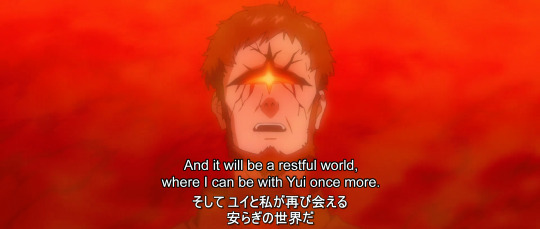
Full sized image here.
Gendo's goal in NGE and Rebuild is the same: To be reunited with Yui.
In Rebuild, he will become God through the use of the Key of Nebuchadnezzar and trigger the Additional Impact with himself at the center, so he can see her again in Instrumentality.
But there's a second aspect to this plan... Killing God.

Gendo lays out his intentions. Full sized image here.
I think it would be naïve of me to suggest that Gendo had any intention of ending things when he said this. These lines obviously pertain to something else (I think all of this is covered in the process of beginning the Additional Impact anyway), and it's made clear that he goes into Instrumentality as stubbornly as he always is.
He fully intended to destroy all of the spears, so nobody would have any way of manipulating or ending Instrumentality, so he could live peacefully with Yui for the rest of time.
Whatever it might have meant there... "Killing God" takes on a completely different meaning by the end of the film.
Yui Ikari is an existence that will live on indefinitely; someone who will never die, even long after humanity is gone. In becoming Unit-01, she alone will wait in the universe forever.
She once resided in the anti-universe; the Promised Land, the one and only place fate may be bent to one's will; she created the world of Rebuild of Evangelion, the beginning of everything.
Yui did all of this to give her son a better life. To let him try over and over again until he broke the curse of the Eva, and emerged into a brighter future.
She, Unit-01, Evangelion as a whole, could not rest until Shinji grew into his own.
Gendo comes to the conclusion during Instrumentality, after bleeding his heart out to his son, that he isn't any closer to reuniting with her.
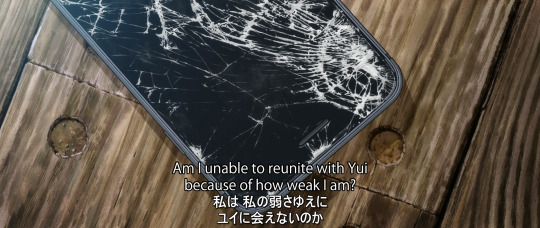
Full sized image here.
But after acknowledging Shinji's adulthood, accepting his own fragility, and resolving their story...

Full sized image here.

Full sized image here.
...He realizes she was right in front of him this whole time.
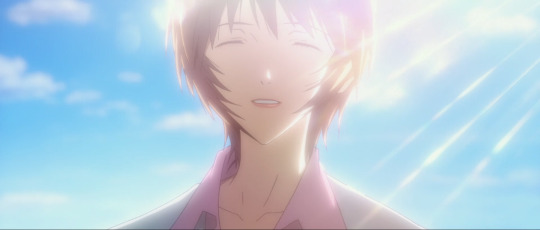
Full sized image here.
With this, Gendo exits the train - the same train his story began, the train station he abandoned Shinji at all of those years ago - his story is over. He no longer seeks eternal life with Yui.
As Shinji breaks his own curse of Eva and is reborn out of the comfort of his mother's world, and into a world of his own creation, he says goodbye to all Evangelion.

Full sized image here.
Gendo, in peace at the end of his own long journey, is willing to let Yui sleep.
And so, he kills God.
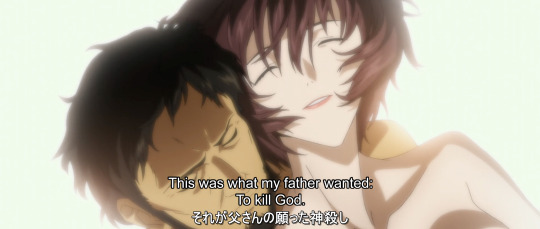
Full sized image here.
#evangelion#rebuild of evangelion#neon genesis evangelion#analysis#yui ikari#gendo ikari#shinji ikari#kaworu nagisa#yui ayanami#evangelion 3.0+1.0#shin evangelion#shin eva#nge#eva#loop theory
455 notes
·
View notes
Text
My reactions to Evangelion episode 26: Take care of yourself
I had to go to the store after the last episode and I was a nervous wreck the whole time. I am a nervous wreck right now. My stomach is turning. I am so worried about what we're going to find out and what's going to happen.
We're focusing on the instrumentality of the heart belonging to the boy Shinji Ikari. Oh, god.
So is it going to be like a hive mind?
"If I run away, no one will talk to me again" "Don't abandon me!"
"If I pilot the Eva, I can exist as myself." Is the reason piloting the Eva was so painful at first because of how hard it is to look at oneself?
"I have nothing else."
The Eva changes and overcomes their personalities if they tie their identity too much to it. Like Asuka.
So, all this mind meld stuff is the instrumentality taking place, yes? They are all kind of slipping together into one consciousness?
Oh, Asuka with those hollow cheeks.
I can't believe this has been going on for two episodes lol. I can understand why they had to make a movie after this because I feel like I'm going to riot. I thought we were going to, like, return to the plot.
Oh, thank god.
But is this an alternate world? Since when is Asuka his childhood friend? Pen Pen is a clock?
Do they not have faces?
It's so weird to see them, especially Shinji, acting like such normal kids. But him and Asuka fighting is cute.
The art style changed from animation to sketchy stills. I guess the illusion is fading.
Ah, it was another possible world.
We're back at it. Oh, god. I was into it for the last episode when I thought it was leading up to something but at this point, I've given up and I feel like I'm having the same message hammered into my head over and over again.
Lol and then everybody stood up and clapped.
I am laughing so hard. What the fuck was that?
In Conclusion
How is that even a conclusion??? I... I need to know that something is actually going to happen in the movie.
Okay, I skimmed the Wikipedia page. That sounds more like it. I'm planning to watch it on Sunday and I guess I saw a couple spoilers? But I read it in that not paying attention way so I'm hoping they will spill from my head by then. And it was just stuff that I was either already anticipating or was not surprised by anyway, so I think it will be fine. And I think I saw Shinji survives? So I'm even more fine if that's the case.
I'm not supposed to like this ending, right? Like, I'm allowed to think this was nonsense?
I mean, I suppose it was meant to be the instrumentality proceeding as planned and succeeding but, like... It just feels like the author stood up, threw down their pen, and declared, "I am fucking tired of crafting a story with plot points and tension and character development! I want to talk about the weird things I think about in the shower!" and then proceeded to do that for an hour.
I had myself worked up into a tizzy over nothing.
I'm sorry if I was supposed to enjoy this, but, I am now super excited for the movie.
I'm sorry. Episodes 1 - 24 were great, though. 10/10 would watch again (and probably will)
#neon genesis evangelion#evangelion#first watch#shinji ikari#yui ikari#gendo ikari#misato katsuragi#asuka langley soryu#rei ayanami#ritsuko akagi#pretty much the whole cast showed up to tell Shinji they hated him over the phone
43 notes
·
View notes
Text
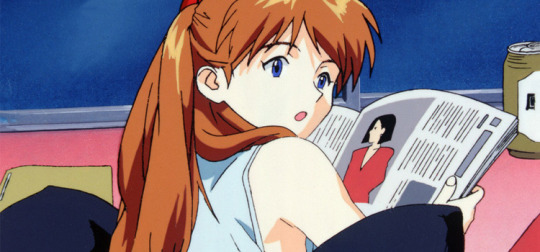
literary references in evangelion
toji suzuhara, kensuke aida, and the last name horaki are lifted from characters within ryu murakami's novel ai to gensou no fascism / fascism of love and illusion.

nerv's motto is a quote from pippa passes, a 1841 verse drama.
"God's in his heaven— All's right with the world!
this line is also quoted in anne of the green grables.
"'God's in his heaven, all's right with the world,'" whispered Anne softly.
isao takahata's anime adaptation anne of the green gables also includes a scene similar to the ending scene of the anime series.
the name of episode 26 (the beast that shouted i at the heart of the world) is a reference to the book by harlan ellison, the beast that shouted love at the heart of the world, a collection of short stories. "i" sounds very similar to "ai", meaning love in japanese.
the greek tragedies, oedipus rex and electra which is fairly self-explanatory... i hope... with the show's use of freudian concepts (shinji's oedipus complex and misato's electra complex respectively.)

the human instrumentality project is a reference to the book series by cordwainer smith, instrumentality of mankind.
despite that, the human instrumentality bears a striking resemblance to the plot of Arthur C. Clarke's 1953 novel, childhood's end.
plot synopsis on goodreads:
The Overlords appeared suddenly over every city--intellectually, technologically, and militarily superior to humankind. Benevolent, they made few demands: unify earth, eliminate poverty, and end war. With little rebellion, humankind agreed, and a golden age began.
But at what cost? With the advent of peace, man ceases to strive for creative greatness, and a malaise settles over the human race. To those who resist, it becomes evident that the Overlords have an agenda of their own. As civilization approaches the crossroads, will the Overlords spell the end for humankind . . . or the beginning?
in asuka and kaji's introductory episode asuka strikes, there are four battleships in the UN convoy named after the shakespeare plays titus andronicus, cymbeline, othello and tempest.

in 2.22, kaji says he feels like urashima taro, referencing the japanese legend named after it's titular character, a fisherman named urashima taro. the legend goes that the fisherman rescues a turtle and is rewarded by a visit to the dragon palace where he is entertained for several days but when he returns to the human world, he finds that he had been gone for at least a century and everything around him has now changed. this is a metaphor for how kaji left tokyo-03 for only two years yet feels as though everything around him has now changed.
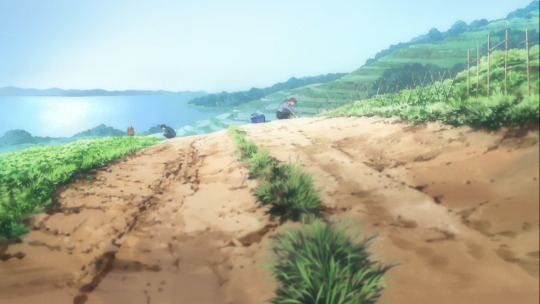
episode sixteen being titled (there are alternate titles to several evangelion episodes) sickness unto death after the philosopher soren kierkegaard's book of the same name exploring christian existentialism.
speaking of episodes being titled after philosophical works from the victorian era, is the hedgehog's dilemma. originally described in arthur schopenhauer's collection of philosophical reflections, parerga und paralipomena. the hedgehogs dilemma is a theme seen over and over again in evangelion with episode 4 being titled after it.
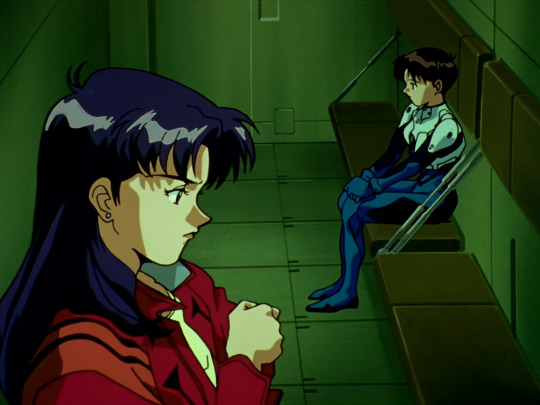
the title of evangelion 3.0 + 1.0: thrice upon a time references the book with the same title, thrice upon a time by james p. hogan.
It's amazing enough when Murdoch Ross's brilliant grandfather invents a machine that can send messages to itself in the past or the future. But when signals begin to arrive without being sent, Murdoch realizes that every action he takes changes the future that would have been...and that the world he lives in has already been altered!
Then a new message arrives from the future: The world is doomed!
as qmisato pointed out, anno has referenced james p. hogan's works previously as well (nadia: secret of the waters' final episode being titled inheritor of stars referencing hogan's novel inherit the stars)
#my work#analysis#evangelion#toji suzuhara#kensuke aida#hikari horaki#asuka langley soryu#shinji ikari#misato katsuragi#yui ikari#ryoji kaji
563 notes
·
View notes
Text
I have some Thoughts on Evangelion, and I'm hyperfixating right now, so here's a massive info-dump on it. Thank you and I'm sorry.
(trigger warnings for: child abuse, child death, gore mention, pedophilia, mental health, depression, suicide, and potentially more.)
———————————————→
So, my take on the End Of Evangelion is like a 'Worst Timeline AU.' So what would've happened if Shinji had given into the crippling (justified) trauma and deepest depression of an abused, manipulated, and unfathomably damaged child soldier.
The way Misato constantly screams at him throughout the entire series to 'be a man' and pressures him to get into the EVA and fight literal biblical, kaiju-like angels.
The pressure of trying and failing to get a crumb of praise or approval from his neglectful and spiteful father.
The way people (and fans, tbh) get upset with him for constantly changing his mind. How if he doesn't pilot the EVA, either he or his friends could die. The pressure every adult puts on him. Or again, the absolute cosmic terror of just seeing—let alone having to murder these angels.
Of course, he quits all the time, he's 14. He's a child. An average adult with all the combat training in the world would easily do the same.
Yet he comes back again and again, because of the guilt, the self-loathing, the manipulation of the adults around him—
(who can have all the greatest intentions in the world, "the greater good", etc etc, and it doesn't change a goddamn thing that they are putting these children into death machines and treating it like if they dont do it they are selfish and worthless)
—that if he doesn't do it, his friends will do it and either they or others will die if it's not him.
Like, the point isn't that he can't make up his mind: it's the fact that even if he "gives up", he still keeps coming back, and putting himself before others, despite the grief, despite the pain, despite the trauma
A fourteen-year-old child refuses to stop getting up and trying. Which I feel is symbolic of the whole shows entire meaning, no matter how dark things are, how much you hurt, how much others hurt you, how you feel like nothing, and you want it all to just stop—the pain, the memories, the guilt, the crushing weight of complete utter depression—even as the darkest envelops you and holds you tight, you feel like you can never escape: there is ALWAYS a way out of it.
It's fucking hard, you will lose yourself in it, you will hurt so, so much—but eventually you can find your way out. Through time, through loved ones, through therapy, and more. It's never too late or someone is too far gone in their own despair that they can't be saved and brought back.
And that's not even mentioning the other children. Fans enjoy Asuka more than Shinji because she's got that quick, snappy, high-energy personality. She's overly proud and stubborn, and she loves to fight in her EVA. And Rei, she's the shy quiet girl (a Kuudere, even (didnt like writing that)) designed to be mysterious, and to speculate over. Who is she? Why is she so calm? Does she have a personality behind that demeanor?
But, just like Shinji, they are all child soldiers, and like him, they are products of trauma and manipulation by adults.
Rei, was made in a fool-hearted attempt to bring back Shinji's mother, Yui Ikari, by combining her remains with Lilith. What they got was Rei. An assimilation of Yui, Lilith, Eva, all combining into Rei Ayanami.
Her creators obviously had attachments to her, both having loved Yui before her death, and Gendo Ikari almost took her on as a daughter-like figure (Rei being the name he would've given to his child Shinji, if he had been born a girl,) and revoltingly even more than that.
But as the theme of the series goes, good intentions from adults mean very little, and often act as nothing more than an excuse for creating/doing inconceivably monstrous acts.
She is of course used as an EVA pilot, being able to manipulate her form into a 14-year-old. She is used as a tool. She is replaceable. She knows this. She has no desires because no one has ever cared enough about Rei as her own person to let her think for herself, asked her what she wants, her likes, her dreams, her fears.
Rei's entire existence at this point is to serve, and in an eerie way, the only thing she wants is to serve Gendo, because he's shown her the only breadcrumbs of "compassion" she's ever known.
And then Shinji comes along. Shinji has no idea what she is, only that she is another EVA pilot like himself. He speaks to her as he would anyone else. He cares about her, and her well-being as another person. Actual true compassion.
In episode 06, when Rei is hurt and thought to have died by Shinji, he pries open the hatch to her EVA, ignoring the scalding heat that burns his hands to do so. He finds her alive and cries, and she smiles for him.
This scene is an exact parallel that takes place before with Rei and Gendo (Shinji's father.) He pries open the hatch, scalding his hands too, and finds her alive inside. It's identical except for one thing: Compassion.
Shinji fights to free and help Rei, and when he sees her alive, he is overcome with relief that she, Rei, is alive. He is in tears, he tells her she isn't nothing, implying her life is worth something and people care about her.
When Gendo does it, he does it like a man trying to save a valuable asset. He sees she's okay, and mutters 'I see', and that's the end of it.
Again, in episode 23, when Rei actually dies and is replaced; she is confronted by herself (the Meta Rei, the Rei in her purest, most godly self. A combination of all her sense of beings,) and realizes that she is feeling, she is lonely, she is suffering, and for the first time she cries, and asks herself if this just for her love of Gendo, before sacrificing herself in death to save everyone—specifically shinji.
She is replaced by her many clones, but this time she regains some of her memories, her feelings, her anger, and she is more human now, less vessel, more soul. She is Rei.
In the End of Evangelion, we see the depths of Gendo's depravity. He wants his wife, Yui, back as she was, of course. But in the meanwhile, there's Rei. Rei who is part Yui—a substitute. He touches her breast, an attempt to merge with her, and moves his hand down further to rest between her hips, inside her.
Rei is as much his daughter figure and a child, as she is a part of his own wife, and arises from this: an Oedipus Complex. Gendo treats her as a disposable tool, yet holds Yui at his highest priority. She is his to do with as she likes. How many times has he used her like this? How many times has he committed these atrocities with this child behind closed doors?
Amongst everything else Rei is, she is also a victim of pedophilia.
And in her final moments, while he attempts to merge with Rei in a delusional attempt to bring back Yui, Rei becomes her own being. Rei puts her foot down and says no. She's had enough.
"I will not be a puppet for you to control."
She takes the hand of Adam, fully merges with Lilith, and becomes a God.
And what does she do with all that power? She takes it all, and gives it to Shinji. The one person that ever consistently showed her care and compassion, showed her love. Made her realize she is her own person, gives her the strength to realize her worth and refuse Gendo Ikari, and choose her own path.
Her choice can be argued as good or bad, both. But in the end it was REI's choice, and no one elses.
Asuka uses her anger and her fighting as a means to cope with a barbaric childhood. Her mother, Kyoko, underwent a Contact Experiment when Asuka would have been ~5 years old.
Kyoko survived, but lost her mind completely, thinking her real daughter was actually a doll, and leaving Asuka completely neglected by her mother, all whilst begging and trying to convince her that SHE was her real daughter, not some doll she clung to.
Meanwhile, her father was completely unaffected by this, and even had moved on with another woman (An affair that had been going on before Kyoko fell apart completely, the woman being Kyoto's doctor, that she knew about, and took place in their own home while both mother and daughter were present.) Throwing himself back into his own life with this new woman, and job, Asuka was left with nothing.
Asuka's mother finally snaps and plans her own suicide. She invites Asuka, and with nothing else and wanting nothing more than to be acknowledged by anyone, agrees to take their lives together.
As if all of this isn't bad enough, as a final blow, Asuka's mother takes her own life without Asuka, leaving a five-year-old CHILD to find her mother hanging lifelessly, betrayed and alone again.
Her entire personality isn't because she's 'cool' or 'bossy', its an unfathomably traumatized child, constantly in pain and unable to trust anyone, because she has been taught as an infant that she can not rely on the people meant to care for her, because her parents taught her that in the most brutal and disturbing way possible.
There's even reference to her trying to repeat her mother's suicide after disappearing from the fight, only to be found gravely injured and withering away in a bathtub.
She fights so hard to be independent because she refuses to let herself be hurt and abandoned again.
At the End of Evangelion, even when she is screaming and crying, bleeding to death after being speared through the eye, losing power, and being cannibalized alive in her EVA, she is still so desperate, so angry, that she refuses to die, swearing vengeance on her enemies through dying rattled breaths, and it isn't until she is bombarded with blades that she finally succumbs. And at the hands of NERV.
Again, she, and every single EVA pilot, is only 14 years old.
tldr: The series is about child trauma, children being turned into soldiers, the failings of adults around them, and the tragically brutal and real aftermath of the wreaks of havoc that would have on a child.
#I had to get this out of me because the loud fanbase for this show is fucking putrid#and also im hyperfixating and needed to get that out of my system LMAO#evangelion#neon genesis evangelion#eva#end of evangelion#evangelion shinji#evangelion asuka#evangelion rei#shinji ikari#asuka langley sōryū#rei ayanami#kyoko zeppelin sōryū#saiyū langley#gendo ikari#yui ikari
244 notes
·
View notes
Photo

618 notes
·
View notes
Photo
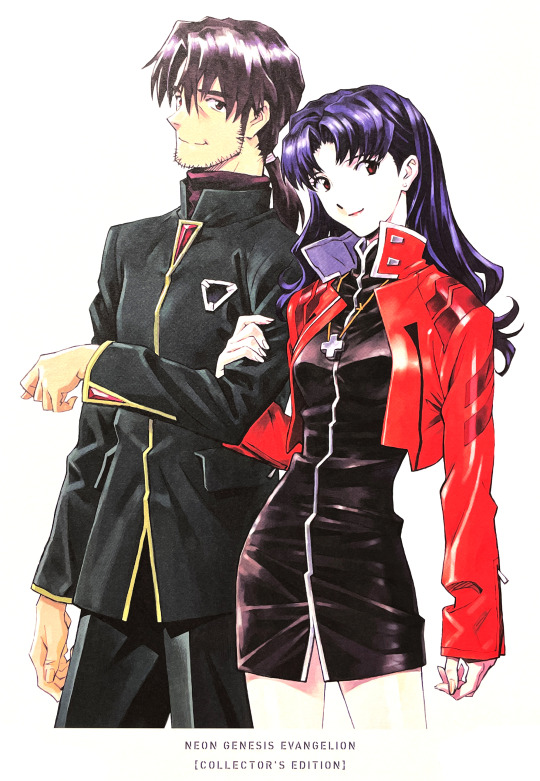


Neon Genesis Evangelion (Collector’s Edition)
#nge#ngeedit#neon genesis evangelion#evangelion#officialevangelion#misato katsuragi#gendou ikari#ryouji kaji#ritsuko akagi#kouzou fuyutsuki#yui ikari#90s anime#90s aesthetic#90s#old anime#oldanimeedit#my post
1K notes
·
View notes
Text
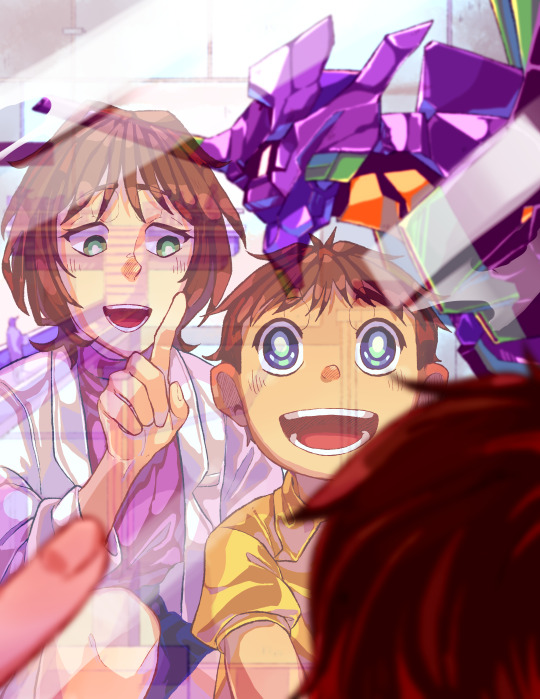
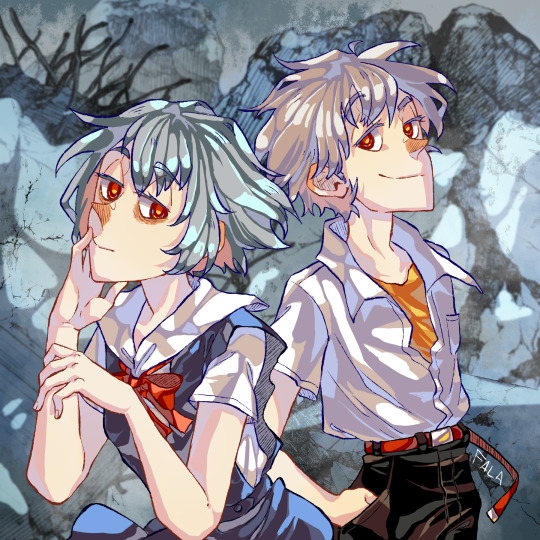
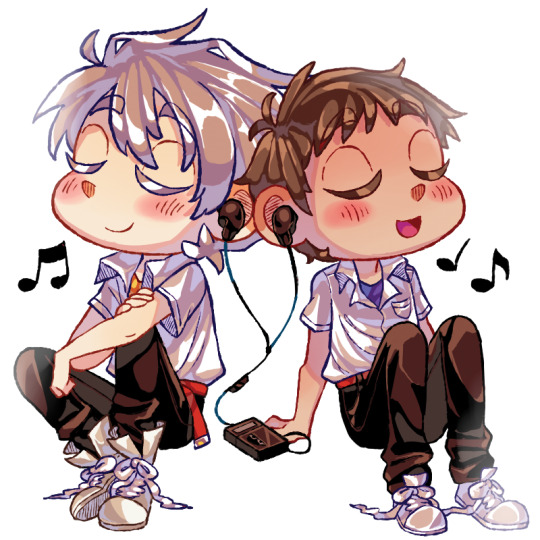
Gonna post all my art from the NGE Congratulations zine before I forget 👏
#neon genesis evangelion#shinji ikari#rei ayanami#kaworu nagisa#yui ikari#kawoshin#nge#Shinji's Angels#my art#a e i o queue
349 notes
·
View notes